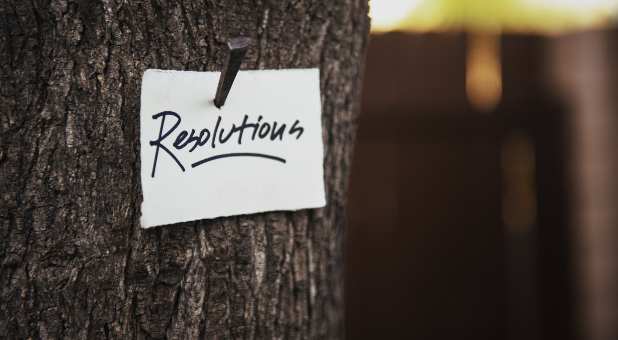When making a New Year’s resolution, Americans take a bit of advice from the beloved 1987 film The Princess Bride.
“If you haven’t got your health, you haven’t got anything.”
Just under half of Americans (44%) said they have made resolutions in the past to address their health, according to a new survey from Lifeway Research, an evangelical group based in Nashville, Tennessee, that studies matters of faith and culture.
Fewer Americans say they have resolved at past New Year’s to address their finances (29%) or their relationship to God (29%). Other topics for resolutions have included a relationship with a family member (26%), time usage (22%), work (18%) or a relationship with a friend (15%).
But while they are less religious than older Americans, younger Americans were more likely to have made resolutions about God, according to Lifeway. A third of those 34 and under (35%) or 35 to 49 (35%) said they made such resolutions. Those from 50 to 64 (25%) or those 65 and older (17%) were less likely to do so.
Frequent churchgoers also are more likely to make a resolution about God, while Black Americans (41%) are more likely to have made a resolution about God than white Americans (27%).
The unaffiliated—also known as “nones”—were much more likely to have made a resolution about money (36%), time (29%) or work (22%) than about God (14%).
“The COVID-19 pandemic may have forced or encouraged more people to make changes outside of the annual reminder a new year brings,” said Scott McConnell, executive director of Lifeway Research. “But a New Year’s resolution is still something most Americans have made at some point in their lives.”
Resolutions about health also topped a recent Economist/YouGov survey of 1,500 Americans, which asked about resolutions for the year 2022. In that survey, about a quarter of Americans who plan to make 2022 resolutions said they will resolve to live healthier (23%), followed by those who want to improve their happiness (21%), lose weight (20%) or work on career goals (16%) or finances (13%). Fewer plan to make resolutions about issues such as improving relationships (11%) or exercising (7%).
Almost no one (2%) resolved to drink less.
The Economist/YouGov survey also found that just over a third of Americans (38%) believe life will be better in 2022 than in 2021, while 14% said it will be worse. The Economist/YouGov survey did not ask about God.
In the 2021 Lifeway survey, based on interviews with 1,005 Americans, and which had a margin of error of plus or minus 3.3 percentage points, young adults—those under 35—were more likely to make resolutions. Americans over 65 were less likely—with 54% saying they’d not made a resolution about any topic Lifeway asked about.
Among self-identified Christians, those who go to church less than once a month were less likely to make a resolution (44%) than those who go more frequently. Protestants (33%) were more likely to have made no resolutions than those who are religiously unaffiliated (24%) or those from non-Christian religions (22%). {eoa}
© 2021 Religion News Service. All rights reserved.
Follow breaking news like this on our new platform, CHARISMA PLUS.














































